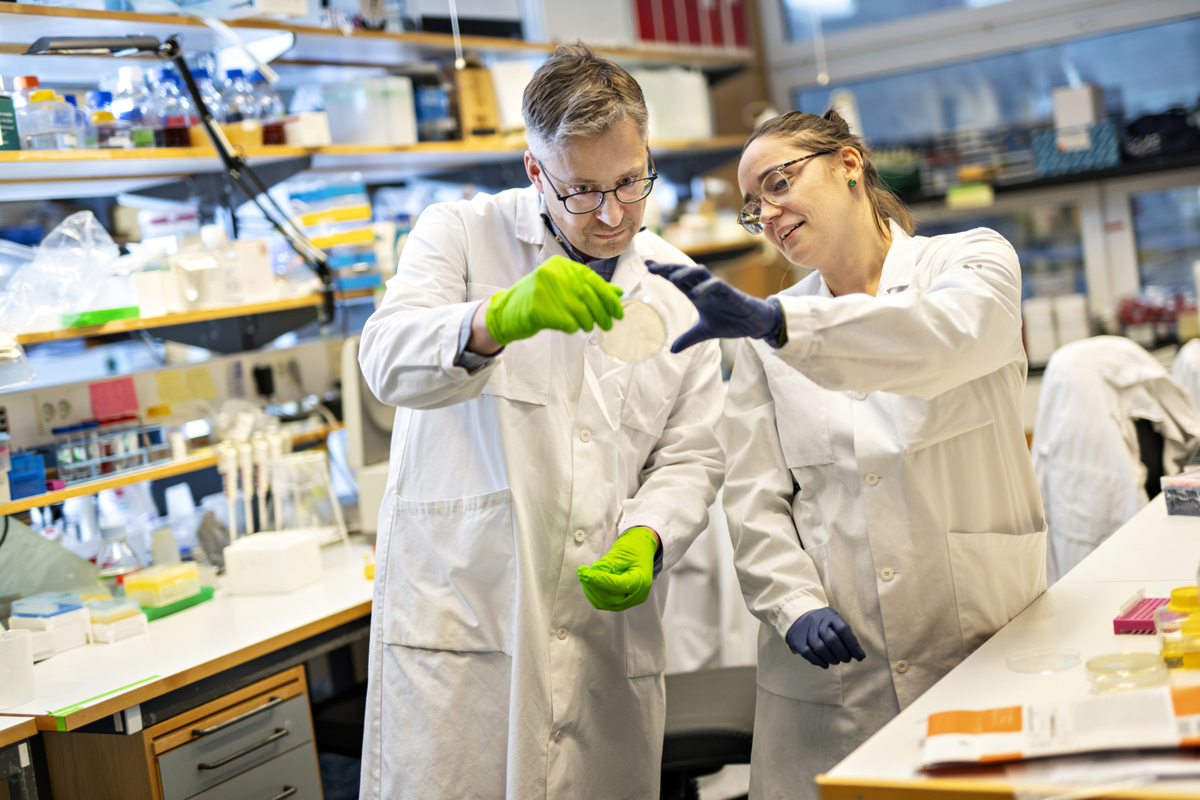1-2 researchers in quantum theory with specialization in ultra-cold quantum gases and few-body quantum systems at the Department of Physics - Hiring in process/Finished, not possible to apply
This advert is not available!
Lunds universitet, LTH, Fysiska institutionen
Lund University was founded in 1666 and is repeatedly ranked among the world’s top universities. The University has around 47 000 students and more than 8 800 staff based in Lund, Helsingborg and Malmö. We are united in our efforts to understand, explain and improve our world and the human condition.
Lund University welcomes applicants with diverse backgrounds and experiences. We regard gender equality and diversity as a strength and an asset.
Description of the workplace
The position is located at the Division of Mathematical Physics, which is a common division between both the Natural Science and Engineering (LTH) faculty, and it is part of the Department of Physics. Presently, the Division of Mathematical Physics hosts five full professors and six lecturers. Research is conducted primarily in the field of quantum mechanical many-particle physics. Specifically, the research areas at the Division include ultra-cold atomic quantum gases, theoretical nuclear structure physics, nanostructure physics, quantum information theory, atomic theory and materials modelling. The division has numerous collaborations both internationally and within Lund University. The team where this position is located was recently associated with the Wallenberg Centre for Quantum Technology (WACQT) and is part of the strategic research priority areas of NanoLund as well as Light and Materials at Lund University.
The work will specifically be carried out in the cold atoms theory group led by Professor Stephanie M. Reimann, which belongs to the Faculty of Engineering (LTH) and is located at the Department of Mathematical Physics. Synergistic effects through our existing collaboration networks, both nationally and internationally, create a strong connection between experimental and theoretical work on ultracold atomic quantum systems. This position is supported by funding from the Knut & Alice Wallenberg Foundation.
We offer
Lund University is a public authority which means that employees get particular benefits, generous annual leave and an advantageous occupational pension scheme.
We offer a position in a dynamic and currently expanding research group in quantum theory, with strong collaborations with leading experimental groups in the field.
Read more on the University website about working with us.
Work duties
The main tasks in this research position involve conducting research, with an emphasis on numerical modeling and theoretical analysis of quantum many-body systems. Specifically, the applicant will perform model simulations on the exact solutions of Schrödingers equation for few-body quantum systems, which will require advanced programming and code development in leading programming languages. Analytical work will guide the numerical methods.
Central to the work will be the further development of new theoretical concepts for the description of ultracold atomic systems, focusing on the configuration interaction methods, many-body perturbationn theory and effective interaction methods. A primary goal of the planned research work is the further development of existing codework to improve convergence methods and regularization schemes.
The work requirements include:
- To support the research team and to contriburte to the research within the field.
- Teaching on the undergraduate and graduate level (max 20%).
- A possibility for higher education teaching education (if teaching is included in the work tasks).
- Supervision of bachelor or Master theses.
- To help with applications for external research funding.
- To interact with industry and society.
- Administration linked to the work tasks described above.
Qualifications
Appointment to a position as a researcher requires that the applicant has a PhD.
Required qualifications:
- A completed PhD in the subject of theoretical physics
- Very good knowledge of English, both spoken and written.
- Ability to work both in a team and independently.
- Experience in advanced programming and code development for demanding numerical problems.
- Excellent communication skills.
- Previous work experience in the field of theoretical few- and many-body quantum physics, with focus on ultra-cold atomic quantum systems.
- Previous work experience with the configuration interaction method and its specific numerical implementation.
Additional requirements:
- Demonstrated strong ability to develop and conduct high-quality research and to publish the research in leading international journals.
- Pedagogical skills.
- Extensive experience in programming languages such as C++, CUDA, Fortran, Python, Matlab, and general aspects of high-performance computing.
Further information
The position is a fixed term position for one year at 100 % per cent of full time. Start 2025-03-01 or by agreement.
How to apply
Applications are to be submitted via the University’s recruitment system. The application should include a CV and a personal letter justifying your interest in the position and how it matches your qualifications. The application should also include a degree certificate or equivalent and any other document to which you would like to draw attention (copies of grade transcripts, details of referees, letters of recommendation, etc.)”
Welcome to apply!
| Type of employment | Special fixed-term employment |
|---|---|
| Employment expires | 2026-02-28 |
| Contract type | Full time |
| First day of employment | According to agreement |
| Salary | Monthly salary |
| Number of positions | 1 |
| Full-time equivalent | 100% |
| City | Lund |
| County | Skåne län |
| Country | Sweden |
| Reference number | PA2025/82 |
| Contact |
|
| Union representative |
|
| Published | 15.Jan.2025 |
| Last application date | 02.Mar.2025 |

